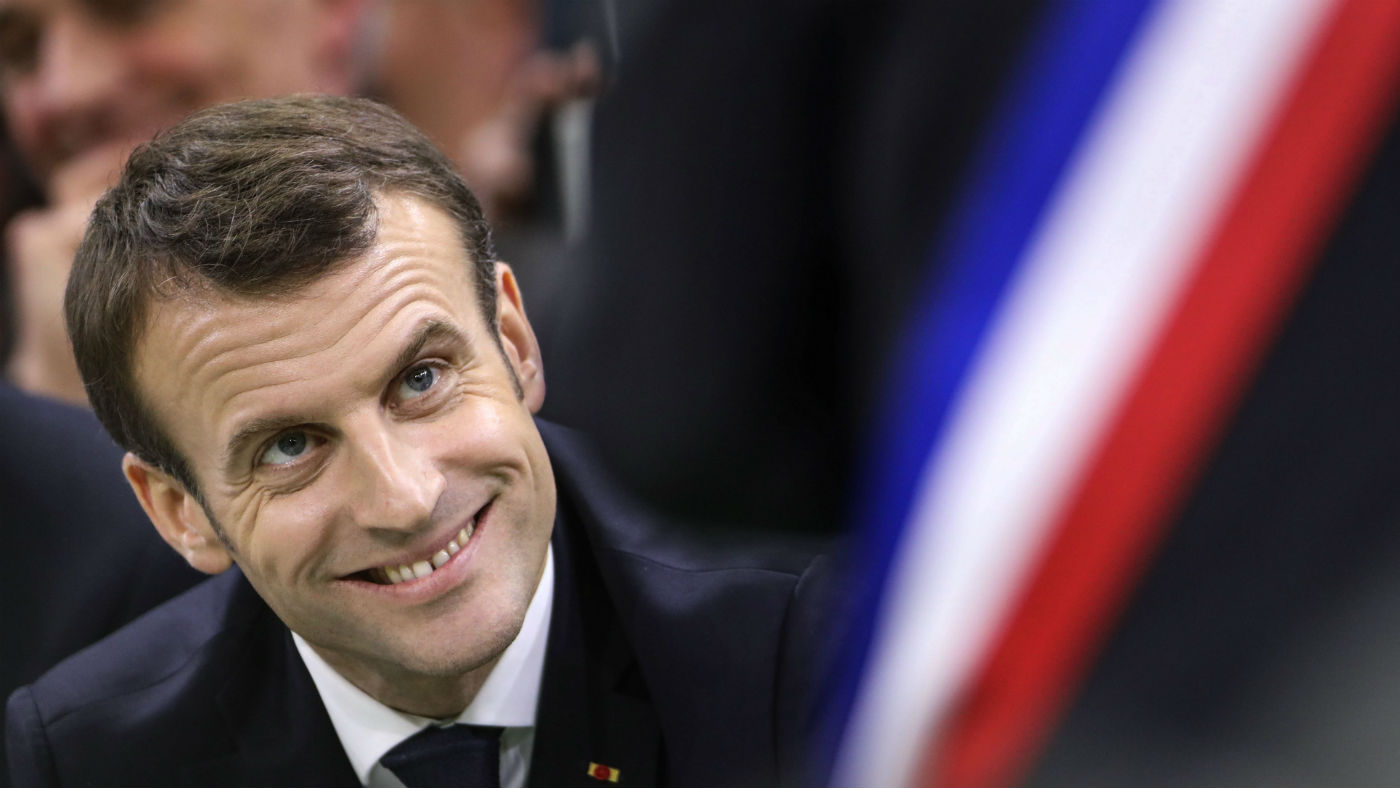How Emmanuel Macron turned his presidency around
After a year of scandals, setbacks and the protests, the French president’s approval rating is soaring again

A free daily email with the biggest news stories of the day – and the best features from TheWeek.com
You are now subscribed
Your newsletter sign-up was successful
Following nearly a year of scandals, setbacks and protests which had seen his popularity drop to record lows, French President Emmanuel Macron appears to be on the up again.
A new poll has put public support for Macron at 40%. This may not seem like much but it is nearing levels last seen before the start of a turbulent nine-month period which saw him face criticism after one of his bodyguards was filmed beating up a protester, as well as a string of cabinet resignations, and most damagingly, the rise of the gilets jaune protests.
Macron enjoyed sky-high approval ratings of over 60% after coming to power in 2017 on the back of hopes of implementing major reform in France, “but his popularity collapsed with the yellow vest movement taking more of the momentum out of the presidency”, says France 24.
The Week
Escape your echo chamber. Get the facts behind the news, plus analysis from multiple perspectives.

Sign up for The Week's Free Newsletters
From our morning news briefing to a weekly Good News Newsletter, get the best of The Week delivered directly to your inbox.
From our morning news briefing to a weekly Good News Newsletter, get the best of The Week delivered directly to your inbox.
Since then, however, Macron “seems to have turned the corner after a series of spending measures and a listening tour designed to soften his image and make him seem less disconnected from average people”, reports Rym Momtaz for Politico.
In response to the gilets jaunes crisis, which provoked the biggest outpouring of civil unrest in half a century and the May 1968 riots, Macron’s government has performed a U-turn on tax and pensions and implemented measures to boost the purchasing power of the less well-off.
For a president constantly portrayed as aloof and a friend of the rich, “such policy changes seem to resonate with left-wing voters in particular”, writes Momtaz.
“Others believe Macron has enjoyed other recent successes such as the country’s record low number of road fatalities following his controversial speed limit cut, as well as his reform of the income tax system to ‘pay as you earn’, which has gone fairly smoothly,” says The Local.
A free daily email with the biggest news stories of the day – and the best features from TheWeek.com
It also appears his much-maligned economic reforms are finally starting to bear fruit, with French unemployment now at a 10-year low, investment at a 12-year high and purchasing power rising according to Prime Minister Edouard Philippe.
Earlier this month, the Daily Express reported Macron’s popularity rating had been further “buoyed by his party’s performance in elections to the European parliament”.
Yet while his support has largely rebounded to the level it was a year ago, it still remains low by comparison to other presidents at this stage in their term.
The Daily Telegraph says “he has also made it clear he intends to push on with a raft of measures, some potentially explosive, which were stalled while he weathered the unrest”.
These include cutting unemployment benefit for high earners, making short-term contracts more expensive for employers and overhauling France's generous but complex and debt-laden pensions system in the hopes of pushing more people to work beyond the legal retirement age.
The Financial Times says “the measures are part of what the Elysee Palace wants to define as ‘the second act’ of Mr Macron’s presidency”.
Yet trade unions and employers have already criticised the plans, labelling them “profoundly unjust” – in a sign that a new spell of public unrest at what is seen as economic reforms that favour the upper classes could be just around the corner.
And then there is Notre Dame. Macron has staked much political capital on a pledge to restore the gutted national symbol of France within five years.
Yet his promise to rebuilt it “so it is even more beautiful than it was” has divided the country.
“Instead of being a unifying project, the vexed question of the restoration of the Notre Dame has become a metaphor for the battle between Macron’s modernising ‘startup nation’ vision of France, and the large number of French citizens who don’t want anything to do with it,” writes Pauline Bock in The Guardian.
Polls indicate that more than half the population want the cathedral back just how it was, yet Macron is determined to push ahead with his vision for a modern architectural take on the old design.
“It’s a debate that shows how Macron’s gung-ho approach rubs so many French people up the wrong way,” says Bock. “In architecture as in politics, Macron is obsessed with innovation: the youngest ever president of France doesn’t want to simply rebuild the cathedral – he has to improve it. In politics, Macron has a deserved reputation for setting bold targets (such as liberalising swaths of the French economy) and not worrying too much about the details, which can end up sparking months-long protests, such as those by the gilets jaunes”.